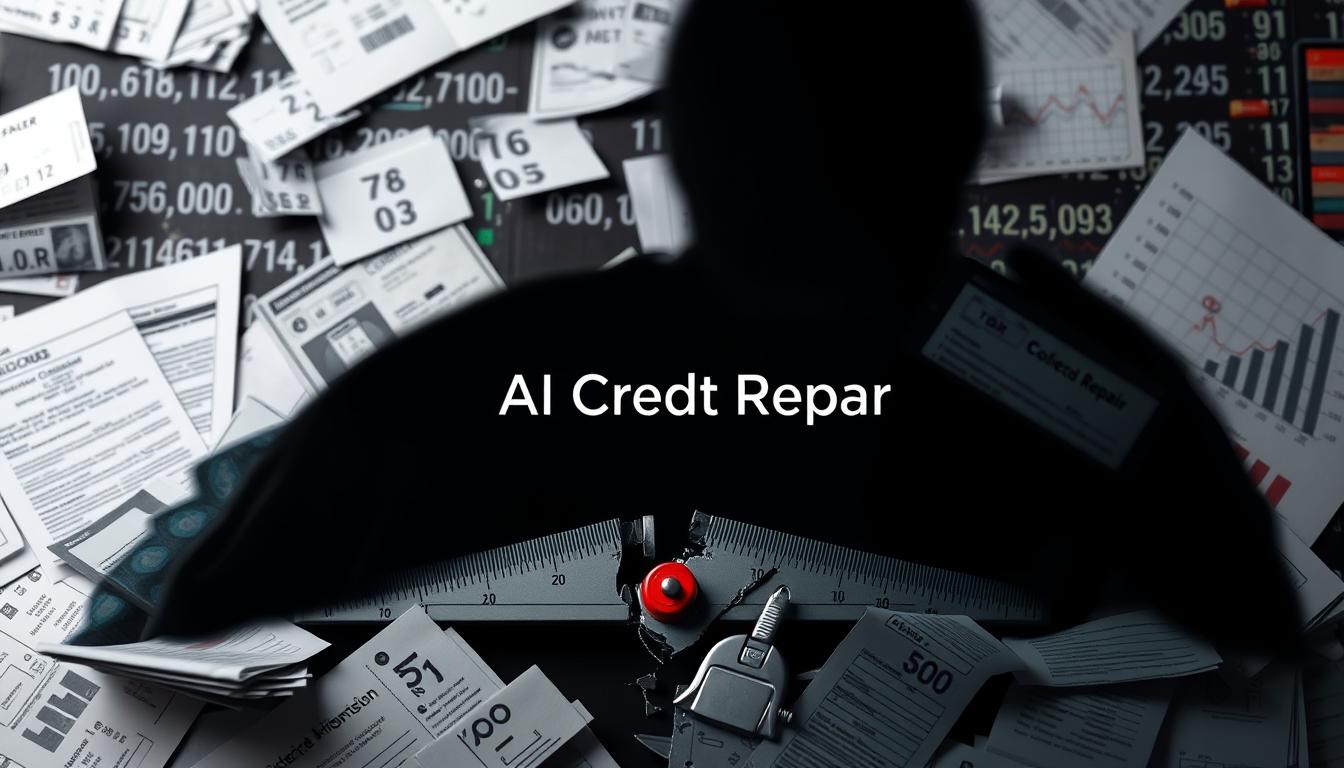Your credit score is vital for your financial health. It affects your ability to get loans, credit cards, and even jobs. Collections on your credit report can significantly impact your score.
The damage can be substantial, often dropping your score by 100 points or more. Understanding this impact is crucial for minimizing damage and rebuilding credit.
Key Takeaways
- Collections can substantially lower your credit score, often by 100 points or more.
- The point drop depends on various factors, including the type of collection, your credit history, and the amount owed.
- Negotiating with creditors and paying off collections promptly can help minimize the damage to your credit score.
- Regularly monitoring your credit report and addressing any errors or discrepancies can also help protect your credit.
- Seeking professional help from a credit repair specialist may be necessary in some cases to navigate the complexities of collections and credit repair.
Understanding Your Credit Score
A credit score shows how likely you are to repay debts. It’s a number between 300 and 850. Lenders use it to decide if they should lend you money.
Your score affects your ability to get loans and credit cards. It can even impact your housing and job options. This number reflects your financial history and repayment habits.
What is a Credit Score?
Your credit score is a key factor in financial decisions. It tells lenders about your money management skills. They use this information to decide whether to give you credit.
Factors that Impact Your Credit Score
Several key elements make up your credit score. These factors help determine your overall creditworthiness.
- Payment History: This shows how well you’ve paid bills in the past.
- Credit Utilization: This measures how much of your available credit you’re using.
- Length of Credit History: Longer histories give lenders more information to assess.
- Types of Credit: Having different types of credit can boost your score.
- New Credit Applications: Too many new applications can lower your score temporarily.
Knowing these credit score fundamentals is important. They help you understand your credit score components. This knowledge is vital when dealing with collections and your finances.
The Impact of Collections on Credit Scores
Collections can severely damage your credit score. They show up as delinquent accounts on your credit report. This information helps lenders assess your risk as a borrower.
A collection can drop your credit score by up to 100 points or more. The impact depends on the debt amount, account type, and collection duration.
Collections stay on your credit report for up to seven years. This long-lasting negative effect makes it harder to get credit. Lenders may see you as a higher-risk borrower.
To reduce the impact, address collections quickly. You can negotiate with the agency, pay off the debt, or dispute inaccurate collections. Taking action helps protect your credit score and financial health.
| Impact of Collections on Credit Score | Potential Point Drop |
|---|---|
| Collections Reported on Credit Report | Up to 100 points or more |
| Collections Remain on Credit Report for 7 Years | Prolonged Negative Impact |
| Difficulty Obtaining Credit, Loans, or Housing | Increased Risk for Lenders |

Knowing how collections affect your credit score is crucial. Taking steps to address them can safeguard your financial future. This knowledge empowers you to achieve your long-term goals.
How Many Points Does a Collection Drop Your Credit Score?
Collections can significantly impact your credit score. The extent of damage depends on several key factors. Understanding these variables is crucial for planning an effective credit recovery strategy.
Variables that Affect the Point Drop
Several factors influence how many points a collection can deduct from your credit score. These include the amount owed, your credit history, and the type of collection.
- The amount owed: Larger outstanding balances tend to have a more severe impact on your score, as they suggest greater financial distress.
- Your credit history: If you have a long history of on-time payments and low debt utilization, a collection may cause a more significant drop compared to someone with a more limited credit history.
- The type of collection: Medical collections are generally viewed as less damaging to your score than other types of collections, such as those from credit cards or loans.
- The age of the collection: Newer collections typically have a greater impact on your score than older ones, as the damage diminishes over time.
A study by Experian found that a single collection can drop your credit score by up to 100 points. The average point drop typically ranges from 50 to 80 points.
The point drop isn’t a one-time event. Collections can keep hurting your score until they’re resolved or removed. The impact can last for years.
Strategies to Minimize Credit Score Damage
Collections on your credit report can hurt your credit score. But you can take steps to reduce the damage. Let’s explore two key strategies: negotiating with creditors and paying off collections quickly.
Negotiating with Creditors
When a debt goes to collections, you can often negotiate with the creditor. You might get a lower settlement amount or a payment plan. Sometimes, you can even get the collection removed from your credit report.
Credit score recovery often starts with successful collection dispute negotiations. This approach can greatly improve your credit situation.
Paying Off Collections Promptly
Paying off debts quickly is crucial for minimizing damage to your credit score. Quick collection settlement shows you’re taking responsibility for your debts.
This action can limit the long-term impact on your credit score. Consider asking the collection agency about payment plans if needed.
| Strategy | Potential Impact on Credit Score |
|---|---|
| Negotiating with Creditors | Can lead to the removal of the collection from your credit report, resulting in a significant credit score increase. |
| Paying Off Collections Promptly | Demonstrates responsibility and can limit the long-term damage to your credit score, especially if the collection is then removed from your report. |

These strategies can help you minimize credit score damage from collections. They’re key steps in rebuilding your credit over time.
Rebuilding Your Credit After a Collection
Don’t lose hope if a collection appears on your credit report. Credit score rebuilding is possible with the right approach. Take proactive steps to restore your creditworthiness.
Negotiate with the creditor holding the collection. Try to get the negative item removed in exchange for payment. This can help your credit repair after collections.
Make all future payments on time. Payment history greatly impacts your credit score. Consistent, responsible payments will help rebuild your credit over time.
- Consider opening a secured credit card to help build positive credit history.
- Become an authorized user on someone else’s credit card with a long, positive payment history.
- Dispute any errors or inaccuracies on your credit report to remove negative items.
Patience and discipline are key for credit repair after collections. You can overcome the impact of a collection with the right strategies. Credit score rebuilding takes time, but it’s worth the effort.
“Rebuilding your credit after a collection is a marathon, not a sprint. Stick to the plan, and you’ll see progress over time.”
Preventing Future Collections
Stopping collections before they happen is key to protecting your credit score. Developing good money habits helps maintain a healthy credit profile. This approach prevents future collections effectively.
Responsible Financial Habits
Build a strong financial base with these habits:
- Make timely payments on all your bills and loans. Prioritize your payments to ensure you never miss a due date.
- Monitor your credit report regularly to identify any discrepancies or unauthorized activity. Addressing issues early can help you avoid collections.
- Create a realistic budget that aligns with your income and expenses. This will help you avoid overspending and falling behind on payments.
- Limit your use of credit cards and only borrow what you can comfortably afford to repay. Excessive debt can increase your risk of collections.
- Communicate with creditors if you’re facing financial difficulties. They may be willing to work with you on a payment plan or alternative arrangement.
Using these credit management tips can help you avoid collections. They also support financial responsibility and keep your credit score strong.
“Responsible financial habits are the key to preventing future collections and building a healthy credit profile.”

Be proactive in managing your finances. Stay on top of your credit. These actions protect your credit score from the negative impact of collections.
The Importance of Monitoring Your Credit
Keeping an eye on your credit report and score is vital in today’s digital world. Regular monitoring helps identify issues that could affect your financial health. By actively managing your credit, you can maintain a healthy profile and avoid setbacks.
Reviewing your credit report helps catch errors and spot fraudulent activities. This vigilance can prevent the negative impact of collections on your credit history.
Watching your credit score is crucial. Changes in your score may signal problems like collection accounts. Understanding what affects your score helps you make smart financial decisions.
“Staying on top of your credit is like maintaining a healthy financial garden – it requires consistent attention and care to ensure it flourishes.”
Use free credit report monitoring and credit score tracking tools to keep your credit healthy. These services offer updates and insights into your credit profile. They empower you to protect your financial well-being.
Make credit report monitoring and credit score tracking part of your financial routine. This helps you stay informed and address concerns quickly. A proactive approach can lessen the impact of collections and other credit challenges.
When to Seek Professional Help
Dealing with credit collections can be overwhelming. Sometimes, the damage is too complex to handle alone. A credit counselor or credit repair professional can offer valuable help.
If you struggle with creditors or legal issues, consider financial assistance. Experts can guide you through collections challenges and help rebuild your credit.
Signs that you need professional help include:
- Feeling overwhelmed by collections agencies and their demands
- Experiencing difficulty negotiating payment plans or settlements with creditors
- Unsure of your rights and legal protections when it comes to collections
- Struggling to develop an effective strategy for rebuilding your credit score after collections
A credit counseling service or credit repair company can provide crucial support. They’ll help you understand your options and create a personalized plan.

Getting help is a smart move towards financial stability. With expert guidance, you can overcome collections issues. You’ll be on your way to achieving your money goals.
Common Myths About Collections and Credit Scores
Many misconceptions surround collections and credit scores. These can lead to confusion and misinformation. Let’s explore some prevalent myths and provide facts about collections’ impact on creditworthiness.
Myth: Collections Always Significantly Damage Your Credit Score
Collections can negatively impact your credit score, but the damage varies. The point drop depends on your credit history, collection type, and amount owed.
Myth: Paying Off a Collection Will Immediately Improve Your Score
Paying off a collection doesn’t instantly boost your credit score. The collection stays on your credit report for up to seven years. Its impact lessens over time as you show responsible financial behavior.
Myth: Collections Don’t Matter if You Have Good Credit
A collection can significantly impact your credit score, even with a strong history. It may overshadow your positive credit record. This makes maintaining a high credit score more challenging.
| Myth | Fact |
|---|---|
| Collections Always Significantly Damage Your Credit Score | The point drop depends on various factors, including credit history and type of collection. |
| Paying Off a Collection Immediately Improves Your Score | The collection remains on your report for up to 7 years, with gradual improvement over time. |
| Collections Don’t Matter if You Have Good Credit | Collections can still have a significant impact, even with a strong credit history. |
Understanding these facts helps you navigate the complexities of collections and credit scores. Stay informed about your credit report. Take steps to address any collections.
This proactive approach can help maintain a healthy credit profile. It also secures a brighter financial future.
Resources for Credit Repair
Several tools can help you recover from a collection’s impact on your credit. These resources offer guidance to rebuild your credit and reach financial goals. Credit repair tools can be invaluable in this process.
Use websites like Credit Karma and Experian for free credit monitoring. They provide insights into your credit history. Debt management apps can help you stay organized and on top of payments.
Educating yourself about credit management is crucial. Explore financial literacy resources to understand credit scores and debt better. Articles, online courses, and workshops can deepen your knowledge of responsible financial practices.
The Consumer Financial Protection Bureau and NFCC offer helpful credit education materials. These resources can guide you in making smart financial decisions. Use them to improve your credit knowledge and skills.

